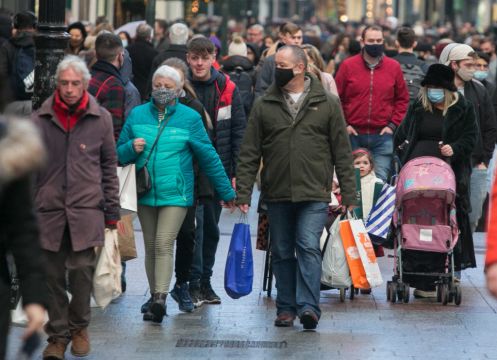Ireland's national 14-day incidence rate per 100,000 is now estimated to be 102.4 after increasing dramatically this week according to the National Public Health Emergency Team (Nphet).
Despite the increase, Ireland maintains the lowest rate of any EU country illustrating the worsening prevalence of the virus throughout the continent.
A number of counties have reported large increases in case numbers, however Donegal, Louth and Kilkenny remain the only counties with incidence rates in excess of 200.
Leitrim and Clare have the lowest rates, recording 25 and 26.1 cases per 100,000 respectively, while Westmeath, Roscommon, Cork and Galway also have rates of below the 50 mark.
In the past two-week period, only six counties have experienced a reduction in case numbers: Limerick, Wicklow, Tipperary, Roscommon, Cork and Clare. Dublin, Meath and Sligo have managed to maintain their level of transmission over the same period.
Considerable outbreaks in parts of Donegal, Mayo, Kilkenny and Carlow have driven the counties' rates up, while Louth reported 47 new cases in the 24 hours to midnight on December 17th, a figure only trumped by Wexford's 59 cases and Dublin's 193 the same day.
The increased transmission of the virus has been a worry for Nphet over the past number of weeks, with a stalled decrease in case numbers caused by the introduction of the last national lockdown now moving towards a situation of exponential growth.
In a statement issued yesterday, Chief Medical Officer Dr Tony Holohan said the rising case numbers pose a real threat to the healthcare service.
“The country simply cannot cope with this level of infection as we head into Christmas week. With vaccines offering hope in the coming months for our most vulnerable groups, we want to keep them alive and well so that they can receive it.
“Each one of us must do all we can to protect public health - cut your contacts, see only those you need to see. Choose to socialise safely, outdoors if possible. If you see a crowd, avoid it.
"By choosing to act safely right now, together we can limit the impact this disease will have in the weeks and months to come - and in doing so, we can protect the vulnerable and prevent unnecessary deaths."







